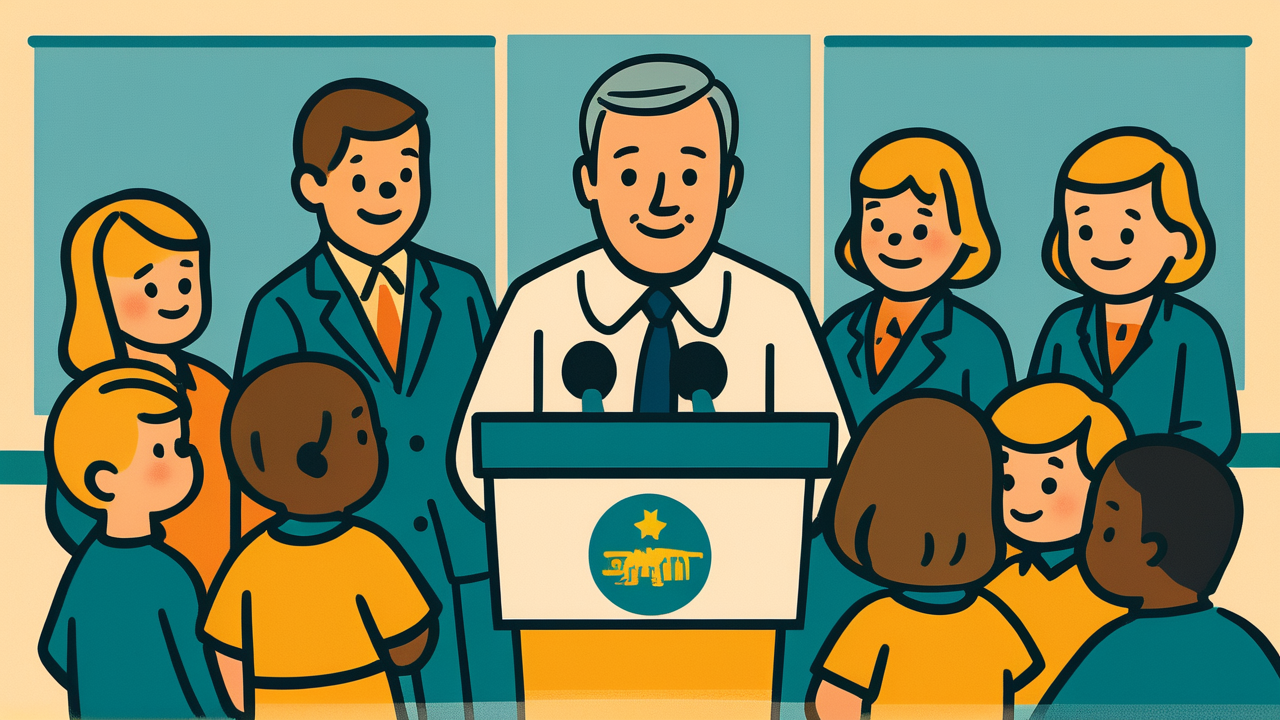[Disclaimer] This article is reconstructed based on information from external sources. Please verify the original source before referring to this content.
News Summary
The following content was published online. A translated summary is presented below. See the source for details.
Prime Minister Anthony Albanese gave an interview to ABC’s Patricia Karvelas after the first Question Time of Australia’s new Parliament. The discussion covered parliamentary tensions, with The Greens facing criticism for disrupting the Governor-General’s speech and One Nation turning their backs during the Welcome to Country ceremony. Albanese emphasized that “respect costs nothing” and parliamentary members should act maturely. The main focus shifted to child care reform, following recent revelations of abuse in child care centers. The PM introduced new legislation allowing the Commonwealth to cut funding to centers that don’t meet safety standards. He reiterated his goal of making universal child care as normal as public school access, suggesting co-locating child care centers with schools to help parents avoid “double drop-offs.” Albanese stressed that early learning centers aren’t just “child minding” but crucial educational environments where children learn numbers, colors, writing, and social skills. The interview also touched on AUKUS submarine payments, with Australia paying $800 million to the US as part of the scheduled agreement to build industrial capacity and train Australian workers.
Source: Australian PM Media Centre
Our Commentary
Background and Context

Question Time is a daily session in Parliament where government ministers answer questions from opposition members. It’s like a formal debate where the government must defend its policies and decisions – democracy in action!
Recent shocking discoveries of child abuse in some Australian child care centers have sparked national outrage. Parents discovered through hidden cameras and investigations that some workers were mistreating children, leading to arrests and center closures. This has made child care safety the top priority for many Australian families.
The parliamentary disruptions mentioned show political tensions. The Greens protested during the Governor-General’s speech (Australia’s representative of the King), while One Nation members turned away during the Welcome to Country – a ceremony acknowledging Indigenous Australians as the original inhabitants.
Expert Analysis
The Prime Minister’s vision of universal child care represents a major shift in how Australia thinks about early education. Currently, child care is expensive and sometimes hard to find. Making it as common as public school would transform how families work and live.
The new safety legislation gives the federal government a powerful tool – cutting funding to dangerous child care centers. Since the government provides billions in child care subsidies, this financial threat could force immediate improvements in safety standards.
Albanese’s emphasis on early learning rather than “child minding” reflects modern understanding that ages 0-5 are crucial for brain development. Quality early education can improve children’s entire educational journey.
Additional Data and Fact Reinforcement
Key facts about Australian child care:
• Over 1.4 million children attend child care services
• Child care can cost families $100-200 per day per child
• The government spends about $10 billion annually on child care subsidies
• Australia needs approximately 39,000 more child care workers to meet demand
• Only 13% of child care centers are currently rated “excellent” for quality
Related News
The AUKUS submarine deal mentioned involves Australia, the UK, and US cooperating to build nuclear-powered submarines for Australia. The $800 million payment is part of a multi-billion dollar program to enhance Australia’s defense capabilities in response to regional security concerns.
Parliamentary respect issues reflect broader social divisions in Australia. The Voice referendum defeat in 2023 heightened tensions around Indigenous recognition, making gestures like the Welcome to Country more politically charged.
Summary

Prime Minister Albanese’s first day in the new Parliament revealed both challenges and ambitions. While managing political tensions with minor parties, he’s pushing forward with transformative child care reforms aimed at making early education both safer and more accessible. His vision of universal child care could reshape how Australian families balance work and parenting. For students, these changes might mean younger siblings get better early education, parents have more work flexibility, and the child care sector offers more career opportunities. The emphasis on respect in Parliament also sends a message about civil political discourse.
Public Reaction
Parents have welcomed the safety reforms but want faster action. Child care workers support better standards but worry about staffing shortages. Opposition parties question the cost of universal child care. Indigenous groups appreciated the PM’s defense of Welcome to Country ceremonies, while some conservative voters sided with One Nation’s protest.
Frequently Asked Questions
Q: What exactly is universal child care?
A: It means making child care available and affordable for every family that needs it, similar to how public schools work – funded by government and accessible to all.
Q: How would co-locating child care with schools help?
A: Parents could drop all their children at one location instead of driving to separate places for primary school and child care, saving time and reducing traffic.
Q: Why does Australia need submarines from AUKUS?
A: Australia wants nuclear-powered (not nuclear-armed) submarines because they can travel farther and stay underwater longer than conventional submarines, important for patrolling Australia’s vast maritime borders.


